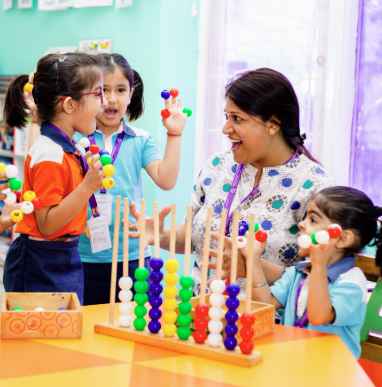Personalized learning is a powerful approach to education that tailors instruction to individual student needs, preferences, and interests. While often associated with older students, the foundation for personalized learning can and should begin as early as kindergarten. Early implementation helps build confidence, independence, and a love for learning that supports long-term academic success.
Early Years Are Foundational
Kindergarten is a critical period for social, emotional, and cognitive development. It’s a time when children begin forming learning habits, exploring curiosity, and developing their sense of self. Personalized learning at this stage helps meet children where they are and supports each child in progressing at their own pace.
Key Benefits of Starting Personalized Learning Early
- Builds a Strong Learning Identity
When young learners are encouraged to make choices in their learning, they develop a sense of agency. This early empowerment helps them see themselves as capable and motivated learners. - Supports Diverse Learning Needs
Children enter kindergarten with varied backgrounds, experiences, and skill levels. Personalized learning allows teachers to differentiate instruction and ensure that each child receives the support they need. - Encourages Curiosity and Creativity
Early personalized learning promotes exploration. Whether choosing books, materials, or activities, students are more engaged when they can pursue topics that interest them. - Fosters Social-Emotional Development
Personalized learning in kindergarten can incorporate strategies like check-ins, goal-setting, and reflection. These practices help children understand their emotions, set positive goals, and interact with others respectfully. - Promotes Early Literacy and Numeracy Growth
With targeted support and student-centered approaches, young children can build foundational reading, writing, and math skills more effectively.
Practical Strategies for Kindergarten Classrooms
- Choice Stations: Set up learning centers that offer students options in activities related to key skills.
- Learning Journals: Encourage students to draw or write about their learning each day.
- Flexible Grouping: Allow students to work in varied groups based on their needs and interests.
- Formative Observations: Use checklists and student observations to adjust instruction.
- Family Involvement: Include families in goal setting and celebrate student growth together.
A Long-Term Investment
Starting personalized learning in kindergarten doesn’t just enhance the early years—it prepares students for a lifetime of empowered, active learning. As they grow, these students are more likely to take initiative, persevere through challenges, and collaborate effectively with peers.
By nurturing curiosity, independence, and joy in learning from the very beginning, personalized learning gives kindergarten students a strong and lasting foundation for success in school and beyond.













